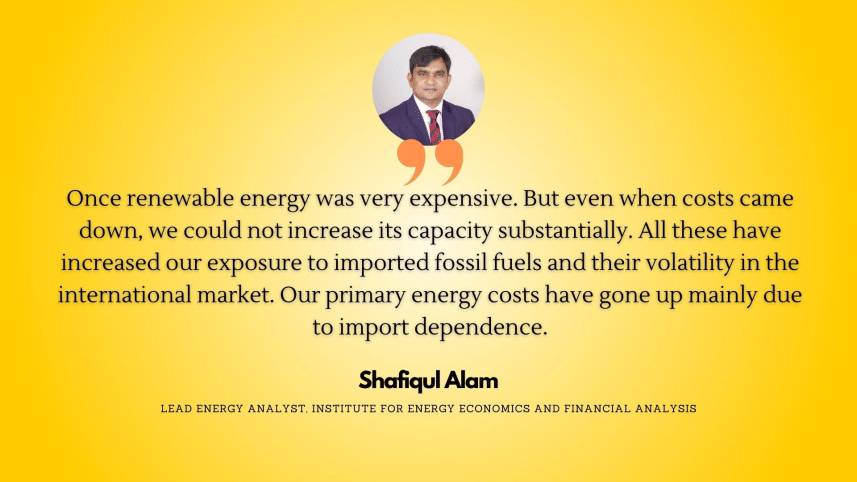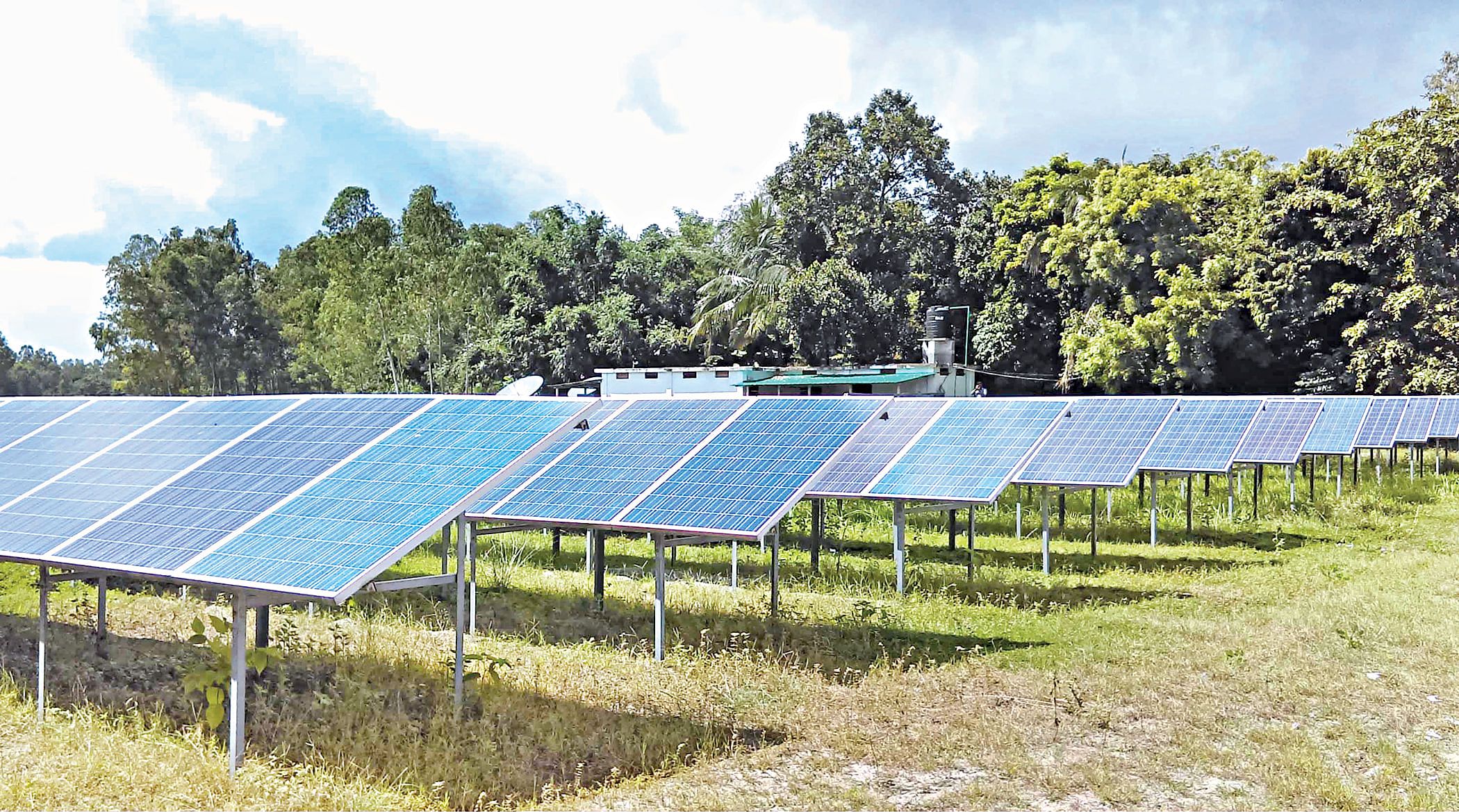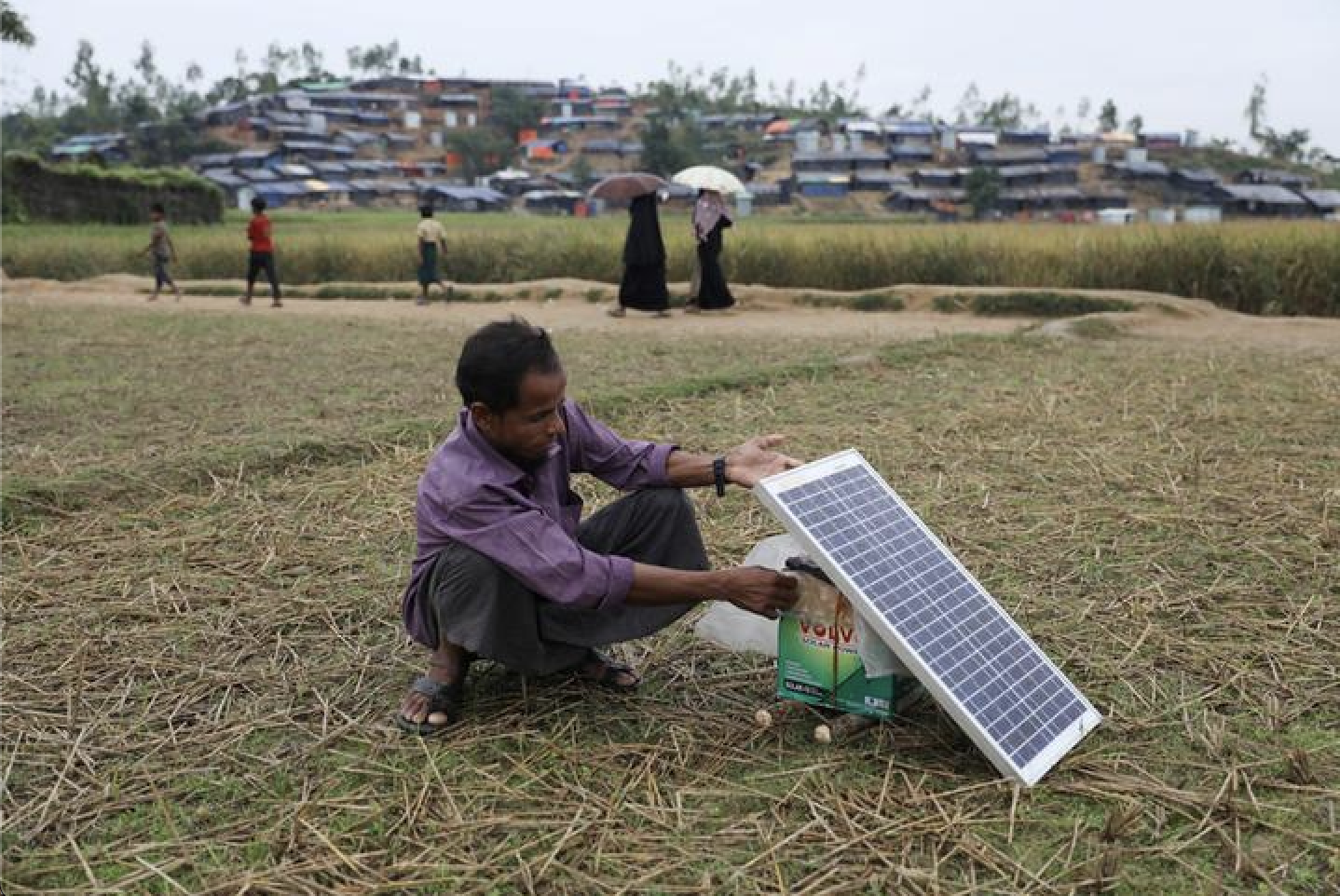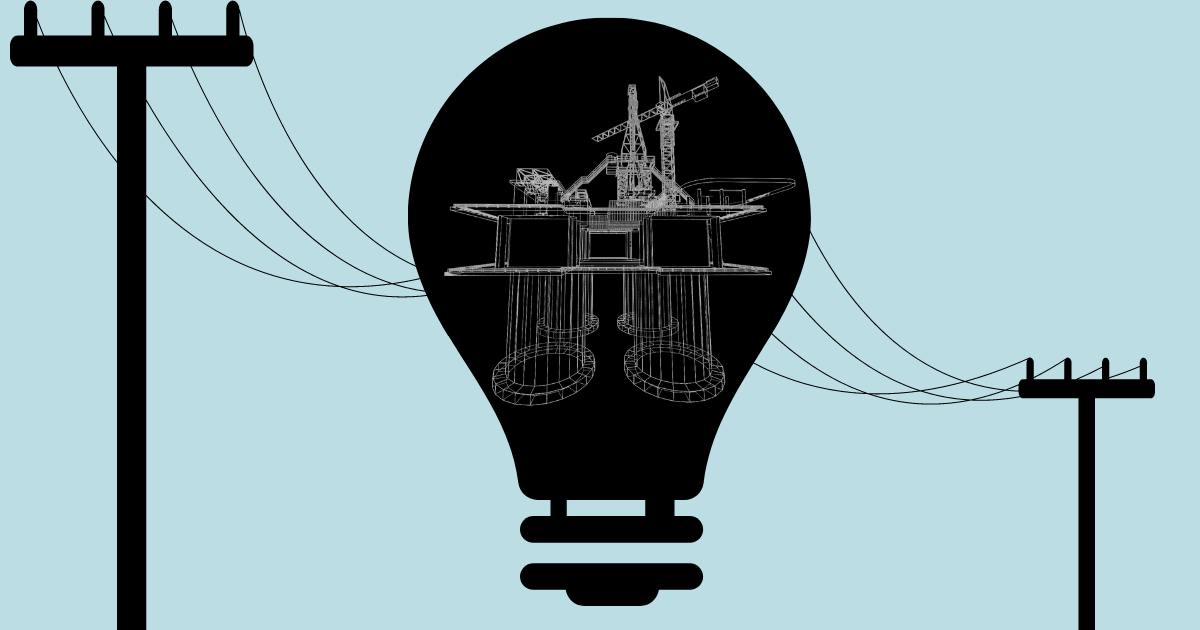'High dependence on imported fossil fuels bringing trouble'

Shafiqul Alam, lead energy analyst at the Institute For Energy Economics and Financial Analysis, discusses the state of our energy sector and implications of a possible price hike in an interview with Eresh Omar of The Daily Star.
Reportedly, the authorities forecast that they will need to increase power supply by 75 percent in April, while the government is already struggling to ensure the current supply. Realistically, can the government boost generation by that much, or will load-shedding be the norm come this summer?
It has been estimated that during summer nights in April, when the demand peaks, 17,500MW will need to be generated. If we look at recent power demands, only a few days ago, it was 11,600MW. Maximum generation, according to Bangladesh Power Development Board (BPDB) data, was 11,426MW. So, there was some load-shedding. Given our current power system capacity of around 26,500MW—without considering captive and off-grid systems—meeting that target should not be a problem. But due to the dollar crisis and because private power producers still owe payments, load-shedding will take place again.
Coal and LNG prices have significantly come down in the international market compared to last year. So, ideally, this year's load-shedding should not be as catastrophic as last year's. But a lot of it depends on how the government manages the total system. While the government took temporary measures, the economic pressure will likely remain. For example, the bonds that were issued to make payments to our private power producers have a cost—that is, the interest payments. These payments only helped oil-fired plants meet their obligation against bank loans. These power-generating units will need additional money to import fuel to produce electricity during this summer. The local gas supply situation has not improved and hence, sufficient fuel supply to gas-fired plants will be a huge challenge. This portrays a scenario where meeting summer peak demands will be difficult.
Although the government will receive international funds to import oil and LNG, this loan will have to be paid back. Given these challenges, the government has to exercise caution and be prudent in its management.
While focusing on increasing generation capacity, why did the government ignore primary energy supply over the years? And how costly is that proving?
When this government came to power in 2009, there were no other alternatives to ramping up generation capacity, because there was such a huge power supply deficit compared to demand. The initial focus on increasing generation capacity had some positive impacts, as industries grew and people's living standards improved. But in recent years, the increase in power demand could not match the trend of power system capacity expansion. Despite having enough generation capacity, we have not been able to cater to the needs of our industries; they still rely significantly on captive systems. If we could have supplied them with consistent and quality electricity, then perhaps this gap between demand and supply would not exist.
Perhaps the concern that we might not be able to find sufficient local natural gas reserves eventually tempted the government to resort to imported LNG to partially meet the demand for gas. Efforts in local gas exploration were not enough to meet the growing demand. Meanwhile, our success in exploiting renewable energy has been very limited. Once renewable energy was very expensive. But even when costs came down, we could not increase its capacity substantially. All these have increased our exposure to imported fossil fuels and their volatility in the international market. Our primary energy costs have gone up mainly due to import dependence.
The high dependence on imported fossil fuels has significantly impacted our energy system, leading to the need for upward price adjustments of energy and power in quick succession, especially in recent years. In fact, a significant amount of dollars is spent on energy imports, which also negatively affects the foreign currency reserves of the country. Besides, the government couldn't supply enough gas to industries which in turn operated at lower capacities last year. Although the industrial contribution to our GDP is on an increasing trajectory as per the Bangladesh Bureau of Statistics data, this contribution would have been even more with sufficient energy supply.
Why are industries using captive systems? Is it because our distribution systems aren't up to the mark?
Yes, there is still a lot to be done there. And the government is working on that, but it needs to be expedited. Also, we need to supply electricity to industries consistently.
Energy security is an integral part of any country's national security. From that perspective, how secure are we, and how can the government address the ongoing crisis in the energy sector?
As our dependency on imported energy increased drastically, our energy security concerns have increased too. To become more economically efficient, we cannot rely so much on external sources for our energy; we have to look into our internal resources. Right now, there are no immediate solutions. We have to focus on long-term solutions and mainly on improving planning, coordination, proper management and good governance.
As our dependency on imported energy increased drastically, our energy security concerns have increased too. To become more economically efficient, we cannot rely so much on external sources for our energy; we have to look into our internal resources.
Still, we can take some measures for short-term relief. For example, since we struggle a lot to meet the evening peak demand for electricity, and since we are now going through a crisis moment, we could perhaps take the initiative to close shopping malls a little earlier on weekdays. The government took a similar measure when the Russia-Ukraine war started. The government can also implement a time-of-use tariff to flatten the evening peak demand slightly.
In the long term, we have to seriously explore local gas both onshore and offshore. Different studies and reports have revealed that Bangladesh has the potential for gas reserves. The Schlumberger 2011 report, for example, talked about 49 wells that should be reworked on. Aside from that, we have to expand our renewable energy capacity. Here, also, we should avoid any sudden expansion. Instead, we should increase capacity gradually. Last April, we released a study which said that Bangladesh could incorporate around 3,000MW of solar energy, and thus reduce the operation of expensive plants during the day's peak hours (when sun is available) and cut down on associated fossil-fuel imports.
While solar can help us with day peak-time energy consumption, wind can help with nighttime consumption. Wind can also help during the daytime. Ultimately, we have to focus more on renewables and improve our energy efficiency, which is something all developed countries around the world are pursuing. Our industries have already improved energy efficiency to a certain level. Many households are using efficient appliances like LED lights and air conditioners with inverter technology. Still, there is a lot of room for energy efficiency improvement on the demand side for which we must spearhead consistent measures.
Cross-border energy trade with Bhutan, India and Nepal is also something we should explore. Reportedly, we have finalised an agreement for hydropower import from Nepal. But we should also explore the potential of energy export. This region has a significant variation in energy demand patterns. For instance, Nepal and Bhutan have low energy production and energy shortages in winter—since they are hydro-dependent. But we have a significant surplus electricity capacity during the winter. This provides an excellent case to export electricity to Nepal and Bhutan during the winter. We should continue our efforts for a regional energy trade that will help both the import and export of energy.
Reportedly, the government will soon raise energy prices. How fair is it to raise prices for consumers while paying capacity charges to idle power plant owners?
Last year's data substantiates that the power sector experienced quite a hefty revenue shortfall. The difference between selling and buying prices is very high. From that angle, the government has no alternative but to raise the power tariff. But increasing tariffs alone will not solve our problems. We need to reduce the cost. Identifying the costly and inefficient power plants and phasing them gradually out will help reduce costs. We also need to forecast future power demand more accurately to minimise overcapacity, reduce capacity payments and thus contain our fiscal burden.
There are a number of plants that are currently in the pipeline—aside from those that are already under construction. We should decelerate the projects that are at the contracting and planning phases, so that our overcapacity problem does not increase further and increase the burden on the economy.
Renewable energy, particularly solar, already has an economic case here. While the cost of solar energy is much higher in Bangladesh than in many other countries, the price will further come down in the foreseeable future, making it even more economically compelling. We need to enter the competitive renewable energy procurement process, which has the potential to reduce costs.
Sustainability is another important dimension that we must not forget. We need to use our resources prudently. For example, Solar Home Systems (SHS) contributed to transformational changes in the lives of rural and far-flung people. But reportedly, many of the SHS are no longer operational after 100 percent electricity coverage was achieved. So, ultimately, it is an inefficient utilisation of resources. Moreover, as per the requirement to obtain new grid connections, different building owners have installed rooftop solar panels. But due to lack of monitoring, many of these installations do not work and deliver little or no energy. We have to cut down on such wastes.
As the power tariff adjustment is on the card, it should be done gradually. The distributional impacts of a price hike on lower income groups, who are often disproportionately affected, should also be kept in mind. Additionally, higher energy prices will affect industrial production.
Follow The Daily Star Opinion on Facebook for the latest opinions, commentaries and analyses by experts and professionals. To contribute your article or letter to The Daily Star Opinion, see our guidelines for submission.




 For all latest news, follow The Daily Star's Google News channel.
For all latest news, follow The Daily Star's Google News channel. 


Comments